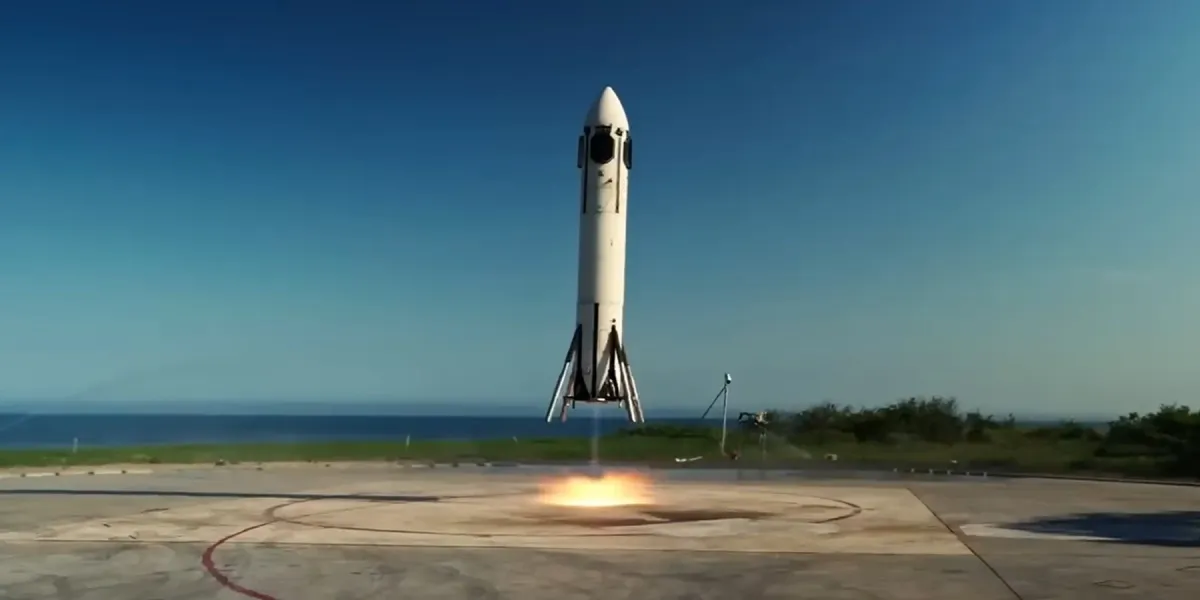Honda, the company that brought you the Civic and the Accord, is now gunning for the stars. The Japanese automotive giant has successfully tested a reusable rocket engine that could transform it from a terrestrial transportation company into a serious aerospace contender—and the implications for the commercial space industry are profound.
From Assembly Lines to Launch Pads
Honda's unexpected pivot to rocketry isn't as random as it might seem. The company has been quietly developing aerospace technologies for years, but their recent breakthrough with a small-scale rocket hopper represents a quantum leap forward. The prototype, which successfully completed multiple controlled flights and landings, demonstrates Honda's ability to apply its legendary engineering precision to the final frontier.
The hopper utilizes a proprietary liquid-fuel engine that Honda claims is both more efficient and significantly less expensive to produce than traditional rocket engines. Early tests show the engine can be reused up to 100 times with minimal refurbishment—a game-changing capability in an industry where single-use components have long been the costly norm.
The Technology That Changes Everything
What makes Honda's approach revolutionary isn't just the hardware—it's the philosophy. By applying automotive mass-production techniques to rocket manufacturing, Honda estimates it can reduce production costs by up to 90% compared to traditional aerospace manufacturers.
The key innovations include:
- Modular Design: Components that can be swapped out quickly, similar to automotive parts
- Advanced Materials: Lightweight composites developed from Honda's Formula 1 racing program
- AI-Powered Control Systems: Leveraging Honda's autonomous vehicle technology for precise landing capabilities
- Rapid Manufacturing: 3D-printed components that can be produced in days rather than months
A New Space Race Emerges
Honda's entry into rocketry comes at a pivotal moment. The global space economy is projected to reach $1 trillion by 2040, and launch services represent a critical bottleneck. With SpaceX currently dominating the reusable rocket market, Honda's breakthrough could provide much-needed competition and drive prices even lower.
"This isn't just about putting satellites in orbit," explains Dr. Kenji Yamamoto, Honda's aerospace division director.
"We're thinking about lunar missions, asteroid mining, and eventually, interplanetary transport. Our automotive heritage gives us unique insights into building reliable, cost-effective vehicles—whether they travel on roads or through space."
The Broader Implications
Honda's success could trigger a wave of traditional manufacturers entering the space industry. Toyota has already announced increased investment in lunar rover technology, while Mitsubishi Heavy Industries is expanding its rocket program. This convergence of automotive and aerospace expertise could accelerate innovation in ways the traditional space industry never anticipated.
For Japan specifically, Honda's breakthrough represents a potential renaissance in space technology. The country has long played a supporting role in global space efforts, but Honda's aggressive approach could position Japan as a leader in the new commercial space economy.
Looking to the Stars
Honda plans to conduct its first orbital test flight in 2025, with commercial operations potentially beginning by 2027. If successful, the company projects it could capture 15% of the small satellite launch market within five years—a market currently worth $7.1 billion annually and growing rapidly.
The transformation of an automotive company into a space technology leader might seem like science fiction, but Honda's methodical approach and early successes suggest this is very much science fact. As the boundaries between traditional industries continue to blur, Honda's rocket hopper might just be the vehicle that drives us into a new era of accessible space exploration.
In an industry where failure is expensive and success is revolutionary, Honda's calculated risk could pay dividends not just for the company, but for humanity's expansion beyond Earth. The company that once asked "How do you solve a problem like traffic?" is now asking "How do you solve a problem like gravity?"—and their answer might just change everything.
Target Audience: Technology enthusiasts, space industry professionals, investors interested in aerospace sector, automotive industry watchers, innovation and business transformation readers, Japanese technology followers
